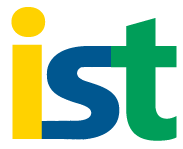|
|

Technology
Posts: 485
      
Location: FCPS (IAK Support Services) | |
|
| |
|
Math
      
Location: IAKSS |
SNIPS
8th-grade Topic 3 Assessment Announcement
• We have had several students miss # 8 because they typed 2,000 instead of 2000.
For teachers who had taken the assessment in advance on the computer, their students knew this. For those teachers who only took the test pencil/paper, this is new information.
Please announce to 8th graders that on #8, NO comma is used in the answer, when typed in the computer.
It is okay to add this information to the SNIP if you have not made copies of the assessment yet.
Attachments
----------------
 Grade 8 Topic 4 Online Assessment question print out.docx (139KB - 3878 downloads) Grade 8 Topic 4 Online Assessment question print out.docx (139KB - 3878 downloads)
|
|
| |
|
Math
      
Location: IAKSS |
Illustrative Tasks matching enVision Topic 4
http://tasks.illustrativemathematics.org/content-standards/8/SP |
|
| |
|
Math
      
Location: IAKSS |
New York Times – Daily Graph information – What Do You Notice? What Do You Wonder?
https://www.nytimes.com/column/whats-going-on-in-this-graph
https://www.nytimes.com/2017/09/06/learning/announcing-a-new-monthly-feature-whats-going-on-in-this-graph.html
|
|
| |
|
Math
      
Location: IAKSS |
Want to learn from our January Statistics PD session?
See our Powerpoint below to learn about the Slide Decks ready to use on Canvas and the terrific FAL - Comparing Data Using Statistical Measures as a digital FAL (new) and Desmos: Shapes of Distributions and more!
bit.ly/fcpsstats |
|
| |
|
Math
      
Location: IAKSS |
A new resource for a Starter or Routine is called the Slow Reveal Graph. go to- slowrevealgraphs.com
There are slide decks that are premade that are terrific to use with sample questions and discussions to ask! One example: https://docs.google.com/presentation/d/1xwNclvTJYHAe653PWccPXTi3mvqI305XEDoGXOUwGkU/edit#slide=id.g2d8ec7aa669_0_0
What IS a slow-reveal graph? Slow Reveal Graph (#slowrevealgraph) is an instructional routine that promotes sensemaking about data. This highly engaging routine uses scaffolded visuals and discourse to help students (in K-12 and beyond) make sense of data. As more and more of the graph is revealed, students refine their interpretation and construct meaning, often in surprising ways. This routine increases access for students without sacrificing rigor or engagement.
|
|
| |


 Topic 4 – Investigate Bivariate Data
Topic 4 – Investigate Bivariate Data